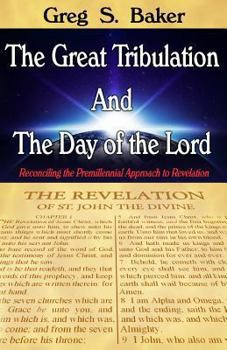The Great Tribulation And The Day of the Lord: Reconciling the Premillennial Approach to Revelation
For many, trying to understand Revelation is an exercise in futility. So much has been written on the subject in growing complexity that the average layman finds himself conflicted in trying to decide which approach to Revelation is correct. Not only do the various approaches drastically conflict with each other, but proponents of the same approach often vehemently disagree with each other, fighting over verses like dogs over a bone.
The author found that to be the case in Premillennialism. There are seemingly dozens of camps within this particular belief, but in his own study, he finally realized that nearly all-if not all-of them have the exact same foundational belief that, unfortunately, is the cause of nearly all their differences and the source of most of their contradictory views.
After all, if you don't begin well, you can't expect to end well.
Seemingly across the board, the erroneous belief of what the Great Tribulation and The Day of the Lord actually are has been the basis for all the flawed doctrines within the various Premillennial camps. Defining them scripturally, not only allows the Scripture to be read line upon line and precept upon precept, but a significant portion of the contention over certain verses is eliminated. Amazingly, once these terms are defined biblically, the study of Revelation suddenly becomes almost ridiculously simple. Oh, there will always be areas that may confuse the Christian or that are disagreed over, but imagine reading Revelation exactly the way we read the rest of the Bible!
Revelation is only complex because people have made it so. This book will help you to see the simplicity in it and provide the right foundational approach to Revelation. If you get the beginning right, you are more inclined to stay on the right path.





